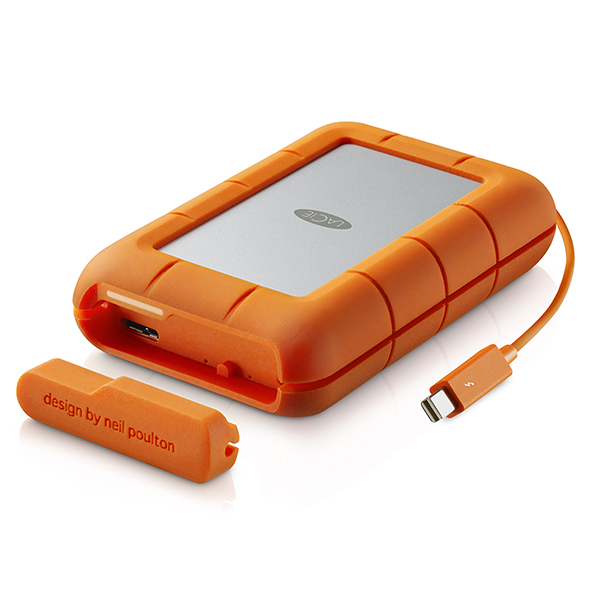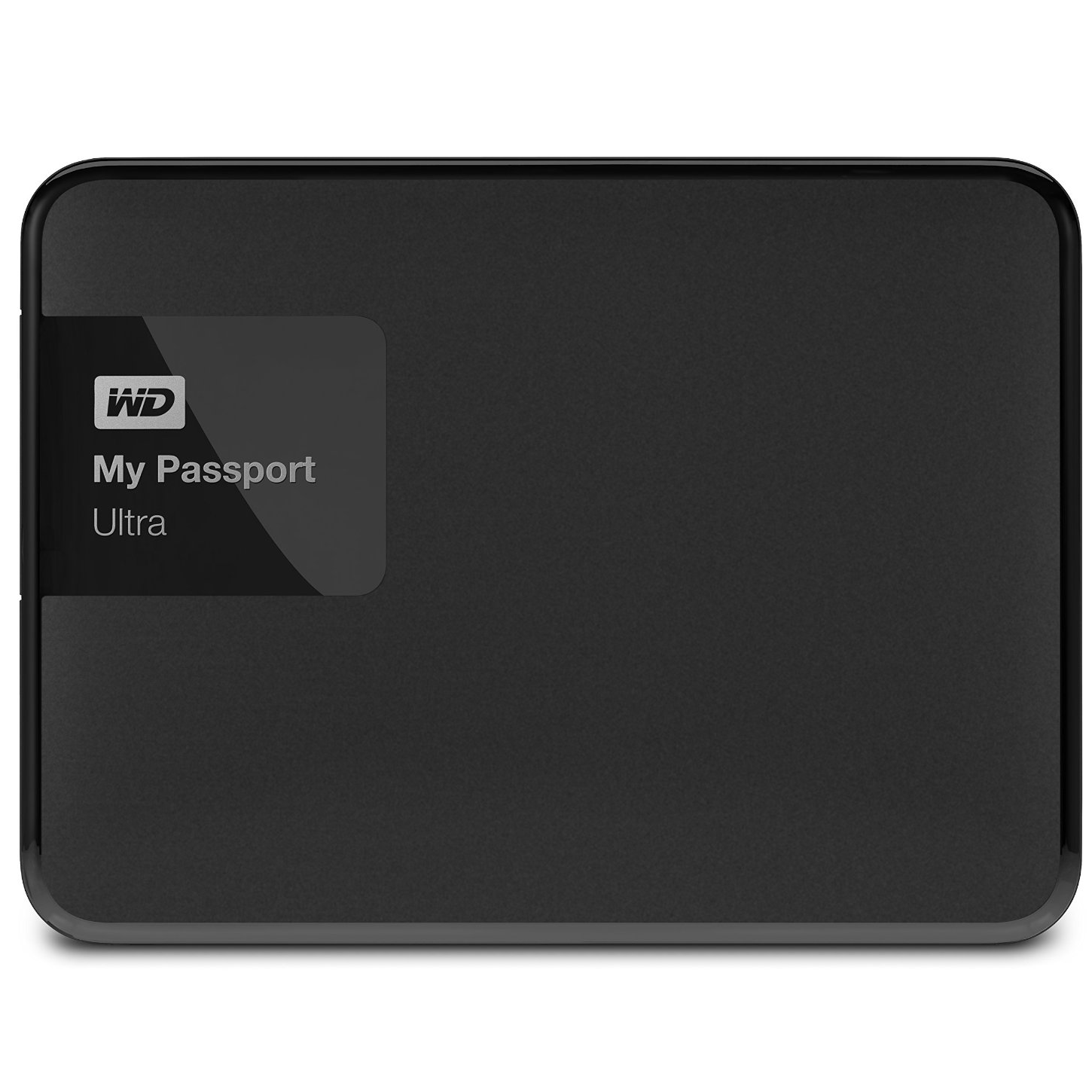Samsung Portable SSD T3 Review
Why you can trust Tom's Hardware
Benchmarks And Conclusion
Comparison Products
We selected two SSD- and two disk-based portable storage products to compare against Samsung's Portable SSD T3 2TB.
Kingston's HyperX Max 3.0 was one of the original portable SSDs. Although it's older, it represents the performance of several other products launched during SandForce's heyday.
The Adata SE730 is a prototype that we've tested, but you cannot buy yet. It employs Silicon Motion's SM2256 controller and Toshiba A19 TLC flash. Like the Portable SSD T3, Adata's SE730 uses USB Type-C to make a 5 Gb/s connection.
Western Digital's My Passport is still available, though the company has updated it. Meanwhile, the LaCie Rugged RAID supports both Thunderbolt 2 and USB 3.0. It uses two 2TB hard drives in RAID 0. We tested it across USB 3.0 for this piece. You can read about its Thunderbolt performance in our review.
Sequential Scaling Block Sizes
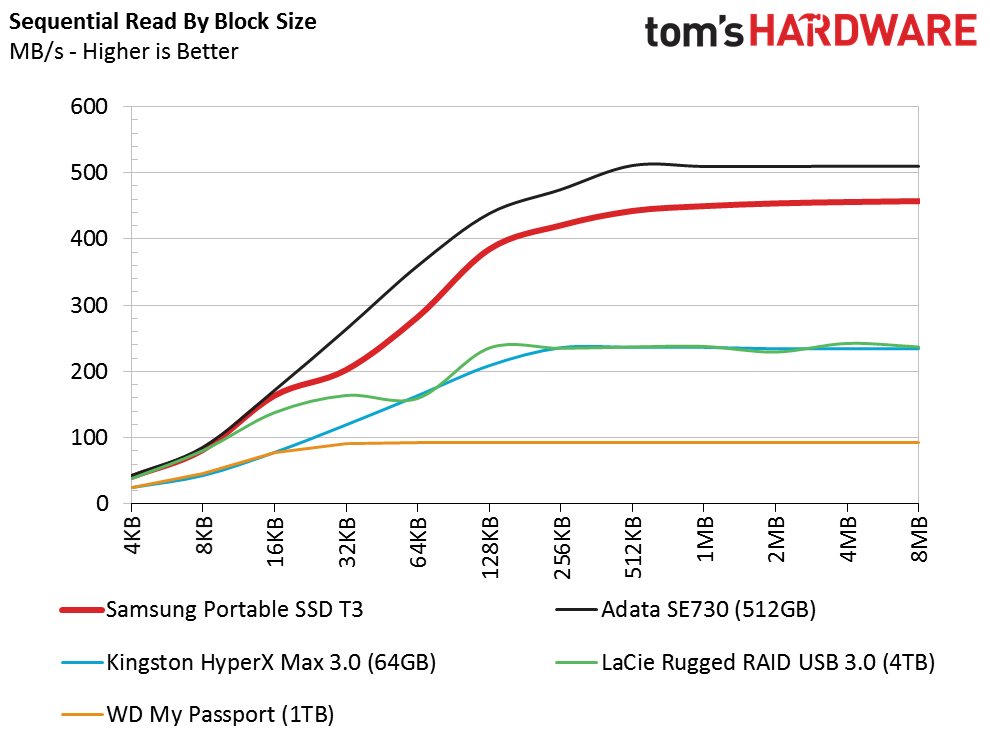
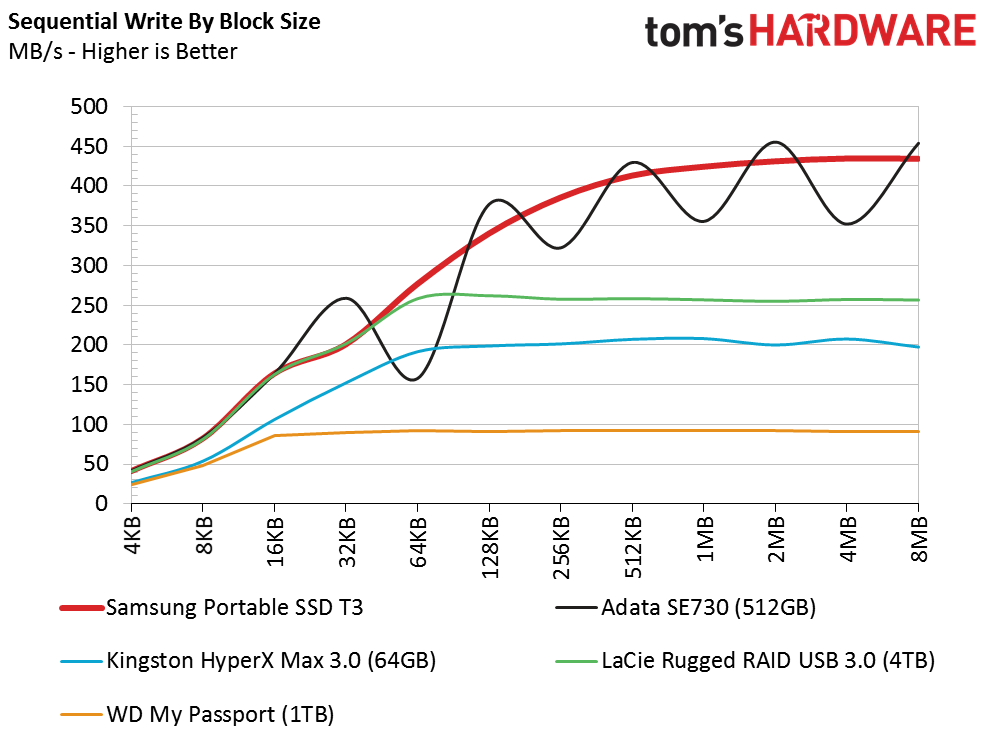
Samsung's Portable SSD T3 2TB hits the company's claim of 450 MB/s reading 512KB blocks. Moving 128KB chunks of data, read performance is only 400 MB/s. The prototype Adata SE730 serves up higher read performance, but not writes. Samsung's firmware is tuned for external -storage applications, and it's bolstered by 12GB of spare area to write performance high, even with data dirtying up the flash. Samsung's NAND uses more planes, so it's faster and more consistent than Toshiba's TLC memory.
Full LBA Span Performance
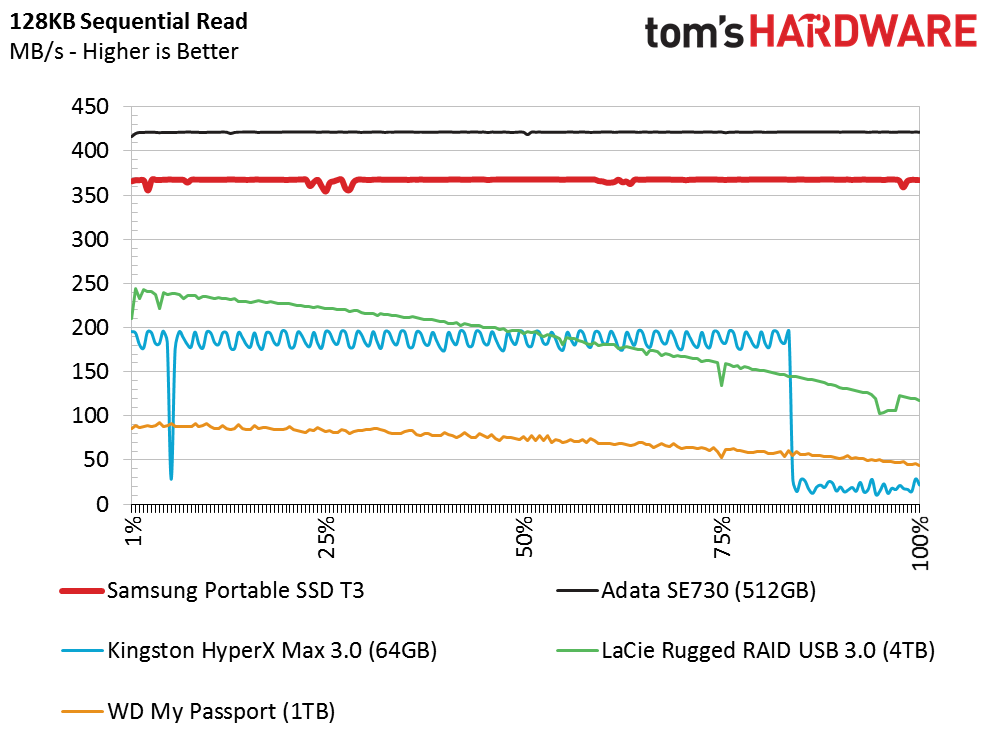
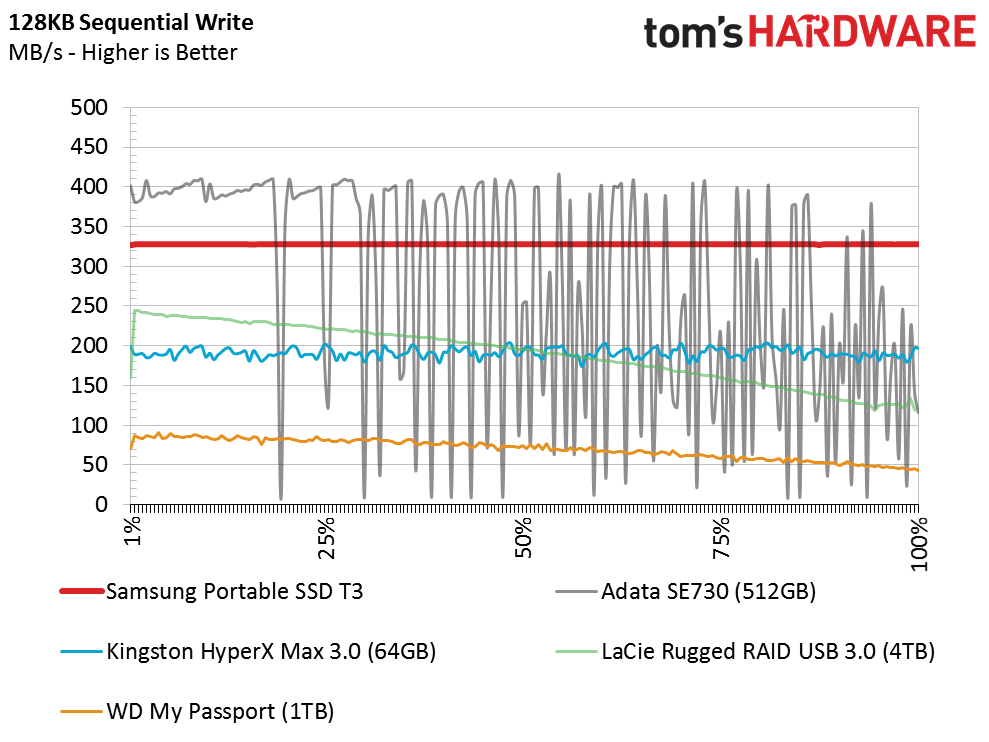
In these two tests, we read and write data at a queue depth of one to the entire user LBA space. Both charts unearth issues that other companies face using flash in external drives. Meanwhile, Samsung's Portable SSD T3 behaves well with a nice consistent line that demonstrates strong, reliable performance.
Kingston's HyperX Max 3.0, on the other hand, triggers background flash management during the read test, dropping performance to 25 MB/s. The SE730 SSD performs extremely well in our read test, but the write benchmark illustrates how dirty cells can cause large fluctuations. This hits the average write speed hard, while also making it difficult to count on a consistent experience in applications that write straight to the SSD.
Get Tom's Hardware's best news and in-depth reviews, straight to your inbox.
Hard disks have their own issues that affect performance over time. The outer tracks read and write faster than the inner ones. Most drives are smart enough to write to the faster sectors first, but once the disk is almost full, performance can drop by 50 percent or more.
File Transfers
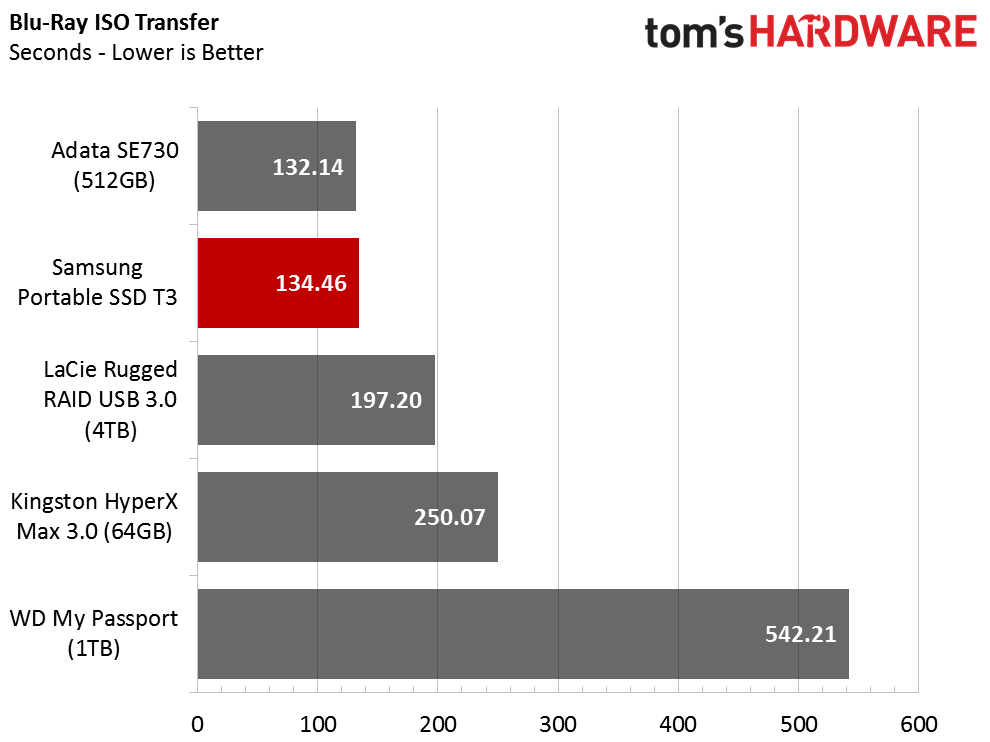
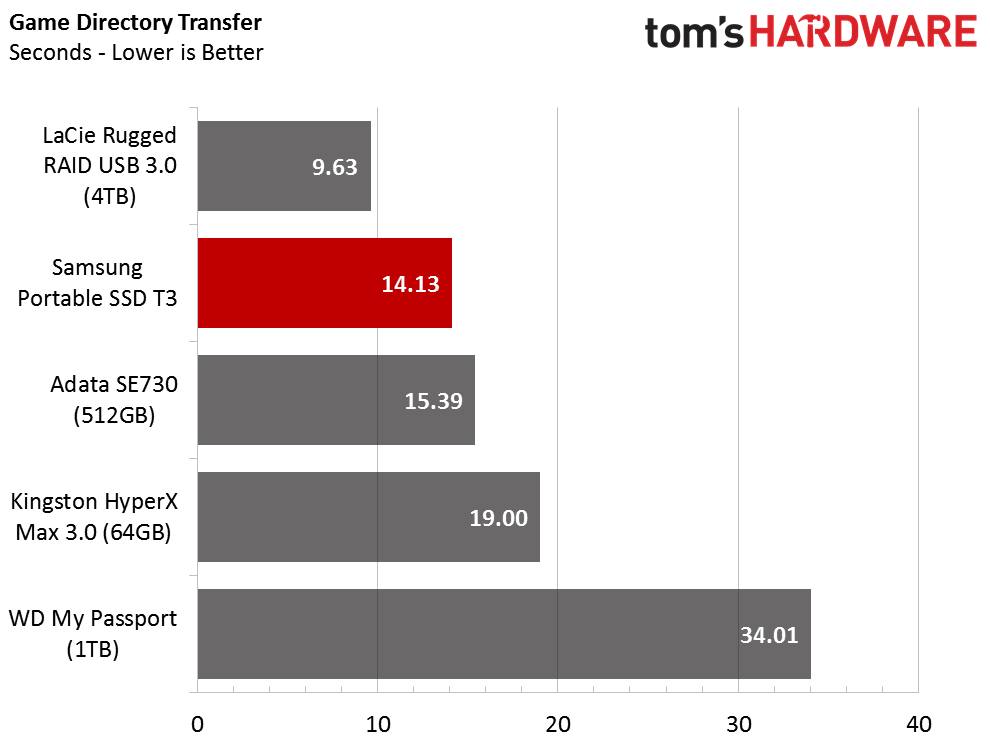
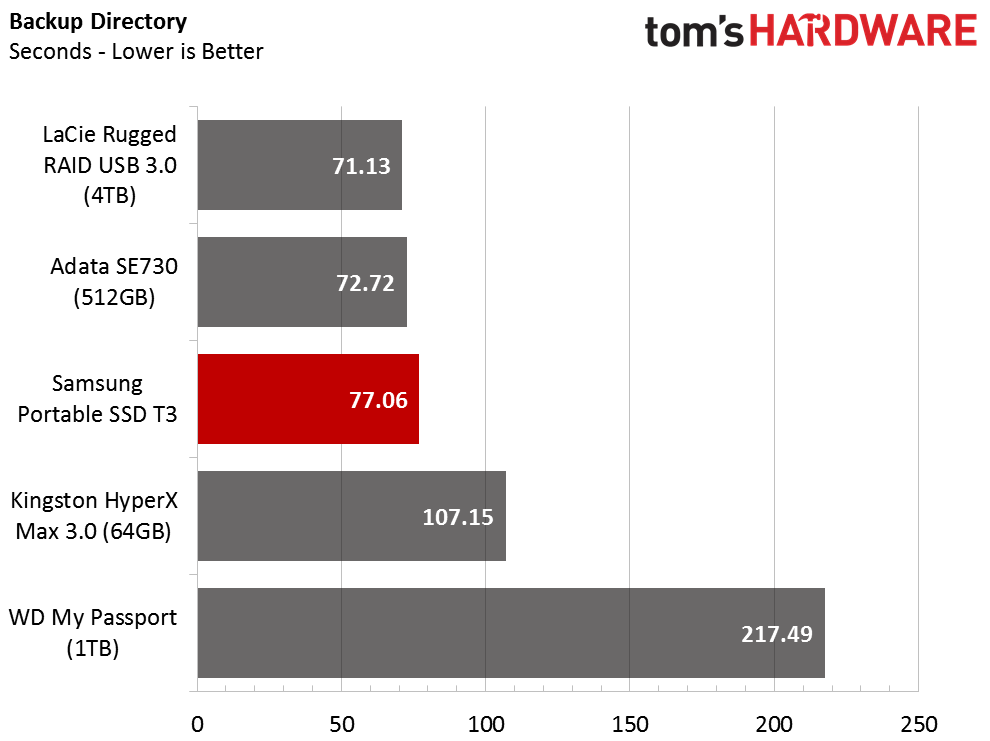
These three tests use an application called DiskBench that transfers data from an NVMe-attached Intel SSD 750. That drive is very fast, allowing us to serve data up to the target drives without bottlenecking performance. DiskBench reports its results in throughput (MB/s) and seconds (the time to transfer the data). We're displaying our results in seconds rather than throughput.
The results show that Samsung's Portable SSD T3 does not offer the best value in this category. With real-world transfers, LaCie's fast Rugged RAID outperforms the T3 in two of the three tests. Though it's far from a low-cost external hard drive, the Rugged RAID sells for half of what Samsung charges for its flagship, and it gives you twice as much storage space.
Conclusion
Samsung's Portable SSD T3 improves greatly on the first-gen version, but I'm still far from impressed.
Shifting to 256Gb dies means that Samsung uses half as many on the 250, 500 and 1000GB models. And since flash makes up most of the cost here, the T3s should be a lot cheaper to manufacture. Yet, Samsung is charging the same amount of money. Yes, external SSDs are premium products, but we feel like Samsung is rubbing our noses in it. A 48-layer V-NAND is the company's hot new technology, but it doesn't give us better performance, increased reliability or, apparently, better value. More than anything, I think we were expecting better pricing.
That hang-up aside, Samsung's Portable SSD T3 is pretty amazing from a form factor perspective. Its compact size is unmatched. Reaching the 2TB mark in a lightweight yet durable package is perfect for photographers and videographers who previously required devices four times the size and much heavier. Performance is good, though we did find some shortcomings with real-world file transfers.
MORE: How We Test HDDs And SSDsMORE: All Storage Content
MORE: Latest Storage News
MORE: Storage in the Forums
Chris Ramseyer is a Contributing Editor for Tom's Hardware, covering Storage. Follow him on Twitter and Facebook.
Follow us on Facebook, Google+, RSS, Twitter and YouTube.
- 1
- 2
Current page: Benchmarks And Conclusion
Prev Page Specifications, Pricing, Warranty And Accessories
Chris Ramseyer was a senior contributing editor for Tom's Hardware. He tested and reviewed consumer storage.
-
jahara21 Apparently, Amazon agrees with you on the price. While the table shows the prices as $130, $220, $430, and $850, clicking on the link and viewing the actual product page shows the prices today as $100, $180, $380, and $780, respectively.Reply -
huilun02 I'm disappointed by what Samsung calls the T1's successor.Reply
In testing its actually slower than the T1.
They could have made it even smaller with the USB-C port, and still be able to give it a metal body.
I'm sorry, the T1 is staying in my wallet.
They had the chance to really threaten the whole USB stick market, but they don't seem intent on doing it. -
WyomingKnott Holy waste! "First up is a 15.36TB monster in a 2.5-inch form factor with SAS connectivity." Don't lead with that - it's too stunning to move past. When will you review that monster? Pretty please? And can I keep the review sample after?Reply -
abhinav_mall "the company used 512 of the new 256Gb dies..."Reply
A matchbox sized 15TB drive to end all your storage needs for $847 !! #ThatsTheDream -
CRamseyer Paul Alcorn, our enterprise SSD reviewer will tackle the 15TB monster when available. We will link his review on Tom's Hardware from Tom's IT Pro.Reply
All of the enterprise SSD reviews are at Tom's IT Pro. There is a really good that just went up on the site today.
